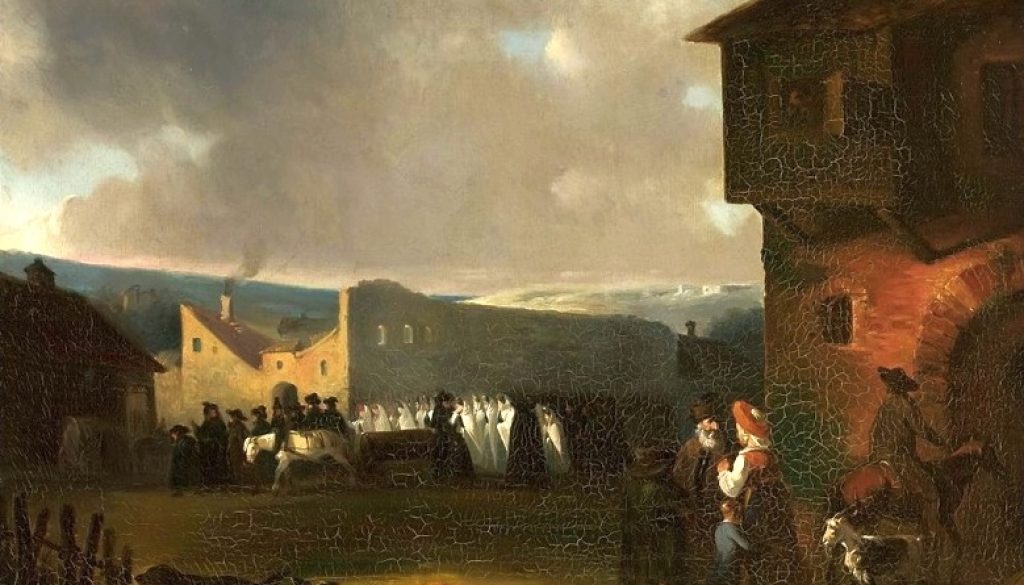Customs and Traditions of a Jewish Funeral

The mourning in Judaism is the combination of mitzvah (religious obligations or good deeds) and minhag (for traditional custom), which are derived from the rabbinic texts and classical Torah of Judaism. The practice and observance details may vary depending on every Jewish community.
Some of the basic Jewish laws of burial or funerals include:
- The deceased body of the human is thoroughly washed.
- The body will be buried inside a simple pine box or the Jewish casket.
- The deceased will be buried while he/she is wearing a shroud simple in white color or simply termed as tachrichim.
- The body will be watched or guarded from the time he/she died up until the burial ceremony is finished.
- Just before the funeral starts, the immediate family of the deceased person will tear their clothes or maybe the rabbi will be the one to do it for them. Another case is the handing of black ribbons (torn), which they will attach on their garments symbolizing their loss.
- After hearing about the person’s death, any Jew should recite the phrase “Baruch Dayan Emet”, which means blesses be the one true judge.
There is a tradition of rending the clothes of the person as well once heard about the news of the person passed. The orthodox personnel will slice the lapel from their suit on left side, above the heart. The non-orthodox practice might be cutting the necktie or wearing a button with the torn ribbon in black.
The holy group or chevra kadisha is the Jewish society for burial typically consisting of males and females, or volunteers, who suppose to be the ones to prepare the body or appropriate Jewish burial. Women prepare the body of women while men prepare the body of men. The deceased will be dressed with white shrouds for burial (tachrichim), which are intentionally remained simple in order to prevent distinguishing between rich and poor citizens. Their task is to make sure that the deceased body will be shown with proper respect, cleansed ritually and should be well-dressed in shrouds. From the time of his/her death the deceased body should not be left along not until the burial has been done. Such practice is called shemira (watching or guarding), which is also according to the principle of dead honoring.
Burial or kevura, must immediately take place after the death. The Torah obliges burial right after the death even for those executed criminals. This only means that the burial will often be held on the similar day of the person’s death, or if it is not possible, it will be held the next day.
Some other reform and congregations postponed burial in order to enable more time for the family that lives far from the place where the person used to stay at. They will be given a time in order to attend the funeral in which they can attend and participate in other ritual for post-burial. The Jewish law requires a simple pine box (Jewish casket) in which the person should be buried. Embalming or cremation are strictly forbidden by the Jewish law however there are lots of reform rabbis will preside at funerals that involves embalming and cremation.
